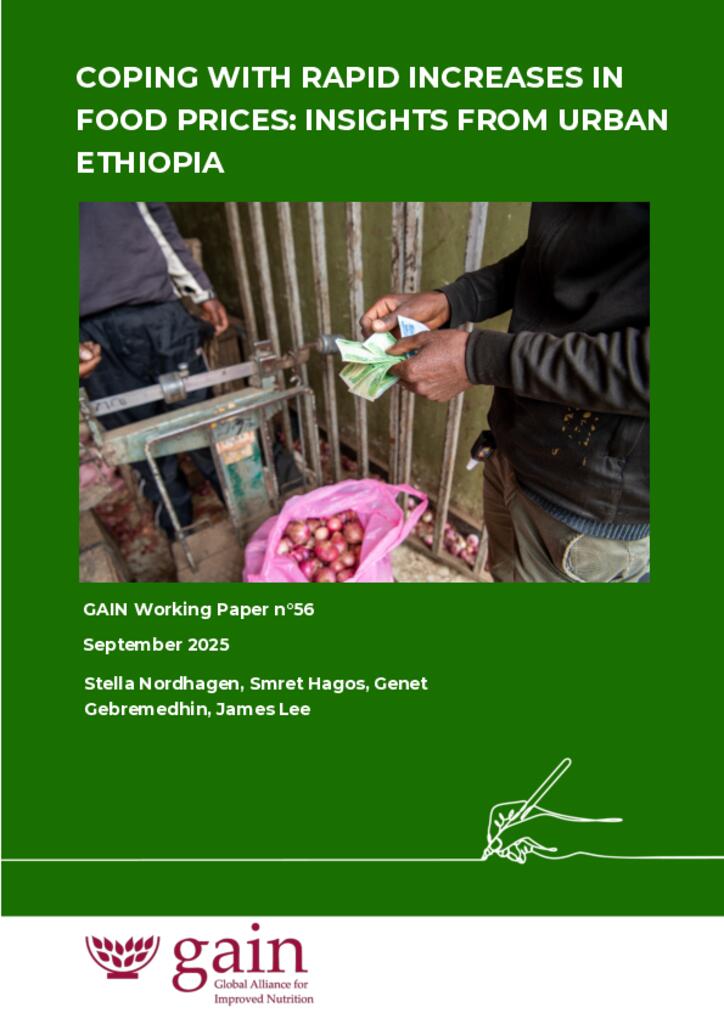In 2022, rapid food price increases raised interest in how such shocks impact markets and consumers—and how policy can mitigate them. To examine this, we undertook a detailed qualitative study in urban Ethiopia, a country particularly hard hit by food inflation. Over two periods in summer 2022, in-depth interviews were undertaken with 83 consumers and market vendors in Hawassa, a mid-sized city, including structured free-listing and ranking exercises.
All interviewees had observed considerable increases in food prices, and most had adapted their food consumption to respond, including by reducing purchases, shifting to cheaper foods, skipping meals, lowering food quality, and finding other sources. While market vendors were also found to adapt their offerings to maintain food access for lower-income consumers, several of the dietary changes cited, such as reducing consumption of nutrient-dense animal-source foods and reducing dietary diversity, could have negative implications for nutrition.
The results underline the imperative to protect diet quality amid food price inflation and support several policy options for doing so:expanding social protection programs to be more nutrition-sensitive; putting in place short-term measures to make nutritious foods more affordable; and reducing price volatility.
